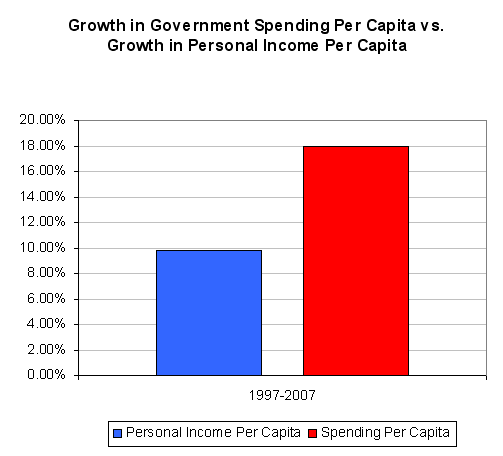Tax would cost state, its residents millions
Study shows income losses in the hundreds of millions, job losses in the thousands
- Wednesday, October 15, 2014
Proponents of the margin tax initiative that Nevadans will consider this November want voters to believe that it will only affect “big business.”
Careful study of the tax’s effects tells a different story. If the margin tax passes, 3,610 Nevadans will lose their jobs and disposable income statewide will drop. And that’s just in the first year of implementation.
This news comes from an analysis conducted by economists at the Beacon Hill Institute at Suffolk University, who used a dynamic and detailed modeling program to see just how implementation of the margin tax would affect Nevada’s economy and finances. What the study found should alarm all Nevadans, whether they are employed, looking for work or the owner of a business.

In its first year of implementation, the margin tax would eliminate 3,610 jobs. The tax would also reduce disposable income in the state by $240 million in the first year, and that number would increase in subsequent years.
All of these disastrous impacts would be felt not by “big business” but by ordinary Nevadans. Newly unemployed single moms will lose their means to provide for their children, families will see their livelihood — their means of providing for their kids — disappear. And even for those fortunate Nevada residents who don’t get laid off, their disposable income would drop as the economy adjusts to hundreds of millions of dollars been taken from the private economy.
The tax would slow the economic growth of Nevada and, because people would adjust their spending habits to accommodate for lost income and higher prices of products, other tax streams in the state would decline. If the tax passes, Beacon Hill projects local governments will have $8.5 million less with which to operate.
While several studies have been published exploring the impacts of the proposed margin tax have been published, none have been as thorough or had as much explanatory power as that provided by the Beacon Hill economists through the Nevada Policy Research Institute. Beacon Hill employed its Nevada State Tax Analysis Modeling Program to draw five years’ worth of data and simulate how the tax would change the economy in future years.
Though supporters claim the tax is not applicable to small business because it exempts businesses grossing less than $250,000 a quarter, simple math shows otherwise. For example, a mom-and-pop restaurant would only need to bring $2,740 through its registers each day to be subjected to the 2 percent modified gross receipts tax.
Supporters say the money is needed for education, but over the past 50 years, Nevada has nearly tripled inflation-adjusted per-pupil spending and currently spends more per pupil than a majority of its neighbors, yet results have declined.
The way to increase student achievement isn’t to give politicians — like the open-meeting law violators of the Washoe County School District Board of Trustees — more money. The solution is to follow the example of states like Arizona or Indiana and empower parents to choose the school and school type that’s best for their children through programs like Education Savings Accounts.
This article was originally published by the Reno Gazette-Journal.
Chantal Lovell is deputy communications director at the Nevada Policy Research Institute.





